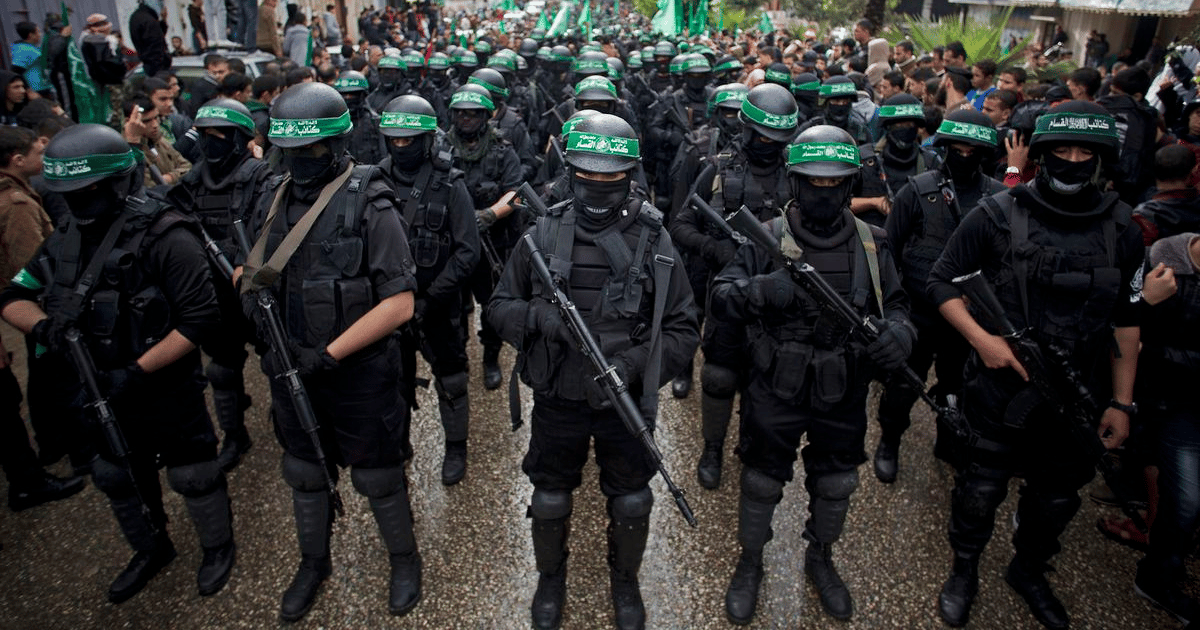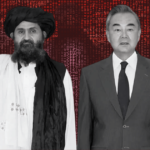Hamas, an acronym for Harakat al-Muqawama al-Islamiya (Islamic Resistance Movement), is a Palestinian Islamist political organization and militant group. Its presence and actions have sparked intense debates and controversy globally, with varied perspectives from different stakeholders. This piece aims to provide a comprehensive and unbiased analysis of Hamas, considering two different perspectives on this issue. Both perspectives have their own reasoning. Supporters of first perspective do not label Hamas as terrorist group. while the supporters of second perspective not only designate the Palestinian group a terrorist organization but only equate Hamas with ISIS.
The classification of Hamas as a terrorist organization is a contentious and complex issue, with differing perspectives and arguments presented by various stakeholders.
#1 Perspective: No, Hamas Is Not Terrorist Organization
Advocates and some observers argue against designating Hamas as a terrorist organization, citing various reasons based on legal, political, and contextual perspectives:
- Perceived Legitimacy and Popular Support: Hamas is the democratically elected governing authority in the Gaza Strip. It has gained popularity and support among Palestinians due to its provision of social services and its stance against perceived Israeli occupation. Some argue that Hamas’s legitimacy as a representative of the Palestinian people challenges the terrorist label.
- Struggle for Self-Determination: Hamas portrays itself as engaged in a legitimate struggle for self-determination and resistance against what it views as Israeli occupation and oppressive policies. Supporters argue that this context should be considered in evaluating its actions and goals, asserting that such resistance is protected under international law.
- Ambiguity in International Law: There is a lack of a universally agreed-upon definition of terrorism in international law. The absence of a clear definition creates ambiguity and room for interpretation, making it challenging to categorically label any organization as a terrorist entity.
- Parallel with Other Liberation Movements: Comparisons are drawn between Hamas and other historically recognized liberation movements that were initially labeled as terrorists but later evolved into legitimate political entities. Advocates argue that Hamas might follow a similar trajectory, transitioning from an armed resistance group to a recognized political force.
- Selective Labeling and Double Standards: Some critics point out what they perceive as a double standard in designating Hamas as a terrorist organization while not applying the same label to other entities involved in armed conflict. They argue that such designations often align with political interests rather than a consistent application of the term.
- Government and Civil Society Engagement: International organizations and some countries engage with Hamas in diplomatic efforts and humanitarian projects. They argue that this engagement aims to encourage dialogue and contribute to conflict resolution, suggesting that engagement can lead to a better understanding of the organization’s motivations and potential for change.
- Distinguishing between Political and Military Wings: Supporters of Hamas argue for a differentiation between its political and military wings, asserting that the political wing engages in diplomacy and governance while the military wing carries out armed activities. They contend that designating the entire organization as terrorist oversimplifies its multifaceted nature.
Advocates and observers who argue against designating Hamas as a terrorist organization present a range of perspectives, challenging the conventional classification. These viewpoints are grounded in legal, political, and contextual analyses.
UN Do Not Consider Hamas A Terrorist Organization
The United Nations’ decision not to officially designate Hamas as a terrorist organization is a result of several factors, rooted in both legal and political considerations:
- Lack of a Universal Definition of Terrorism: The foremost challenge lies in the absence of a universally agreed-upon definition of terrorism within the UN system. Member states have differing views on what constitutes terrorism, making it difficult to reach a consensus on designating specific groups as terrorist organizations.
- Political and Regional Dynamics: The Israeli-Palestinian conflict is a deeply entrenched and politically sensitive issue within the UN. Different member states have historically held divergent positions on the conflict, making it challenging to achieve a consensus to designate Hamas as a terrorist organization.
- Differentiating Between Political and Military Wings: Hamas is seen by some countries as having both political and military wings. While the military wing is associated with acts of violence, the political wing is involved in governance and social services. Some argue that labeling the entire organization as a terrorist group oversimplifies its multifaceted nature and the support it garners within Palestinian society.
- Engagement for Conflict Resolution: The UN often emphasizes the importance of engaging with various parties involved in conflicts, including those considered contentious, to facilitate dialogue and potential resolutions. Engaging with Hamas, rather than designating it as a terrorist organization, is seen by some as a means to encourage dialogue and negotiation towards peace.
- Humanitarian and Developmental Engagement: The UN engages with Hamas to provide humanitarian assistance and support development efforts in the Gaza Strip, aiming to alleviate suffering and address the needs of the population. This engagement is based on the distinction between the group’s military activities and the necessity to provide aid and assistance to the civilian population.
- Concerns about Counterproductive Consequences: Some member states fear that designating Hamas as a terrorist organization may escalate tensions, hinder the peace process, and potentially undermine diplomatic efforts aimed at resolving the Israeli-Palestinian conflict. They believe that engagement and diplomacy may be more effective strategies in achieving a peaceful resolution.
The United Nations maintains a nuanced perspective on the designation of Hamas as a terrorist organization, shaped by legal, political, and contextual considerations. The decision not to officially label Hamas as a terrorist entity is influenced by several key factors within the UN framework
#2 Perspective: Yes, Hamas Is Terrorist Organization
Countries such as Israel, the United States, the European Union, Canada, Egypt, and Japan designate Hamas as a terrorist organization based on several key arguments and considerations:
- Violence and Attacks Targeting Civilians: One of the primary reasons cited by these countries is Hamas’s history of engaging in violent acts and attacks deliberately targeting Israeli civilians despite the fact that Israel helped in creation of Hamas. Suicide bombings, rocket attacks, and other forms of violence directed at civilian populations are considered acts of terrorism, and Hamas has been responsible for numerous such incidents.
- Charter and Objective to Destroy Israel: Hamas’s founding charter openly calls for the destruction of the state of Israel and the establishment of an Islamic state in its place. The commitment to the violent overthrow of a sovereign state aligns with the definition of terrorism, as it involves the use of violence and intimidation to achieve political goals.
- Refusal to Recognize Israel’s Right to Exist: Hamas has consistently refused to recognize Israel’s right to exist as a sovereign state. Denying a country’s right to exist contributes to a hostile environment and perpetuates violence, creating a basis for its designation as a terrorist organization by these countries.
- Involvement in Armed Conflict: Hamas is seen as a key player in the Israeli-Palestinian conflict, engaged in armed conflict against Israel. The group’s active role in military operations and its use of guerrilla tactics, including rocket attacks and tunnel infiltration, contribute to its designation as a terrorist organization.
- Attacks on Israeli Military and Security Forces: Hamas has targeted not only civilians but also Israeli military and security forces. Its attacks on military installations, soldiers, and security personnel are viewed as a part of its overall strategy to destabilize Israel and maintain an atmosphere of fear and insecurity.
- Funding and Support for Terrorism: Some countries highlight Hamas’s alleged involvement in funding and supporting other terrorist organizations. They argue that Hamas provides financial, logistical, and ideological support to groups that are involved in acts of terrorism, further reinforcing its designation as a terrorist organization.
- Global Security Concerns: Hamas’s links to international terrorism and its potential to influence and inspire radicalized individuals globally are of concern to these countries. The transnational impact of its ideology and activities amplifies the need to designate Hamas as a terrorist organization to address broader security threats.
The perspectives of the mentioned countries strongly support the designation of Hamas as a terrorist organization based on its violent actions, refusal to recognize Israel's right to exist, its charter's objectives, involvement in armed conflict, targeting of civilians and security forces, alleged funding of terrorism, and potential to influence global security.
In essence, determining whether Hamas is a terrorist organization underscores the challenges of aligning definitions, perspectives, and motivations within the global community. It also raises another important question of same nature that who is wrong: Israel or Hamas? The nuanced nature of this debate underscores the need for continued dialogue, diplomacy, and efforts to seek a peaceful resolution to the Israeli-Palestinian conflict, transcending the complexities of labeling and promoting understanding among all parties involved.






